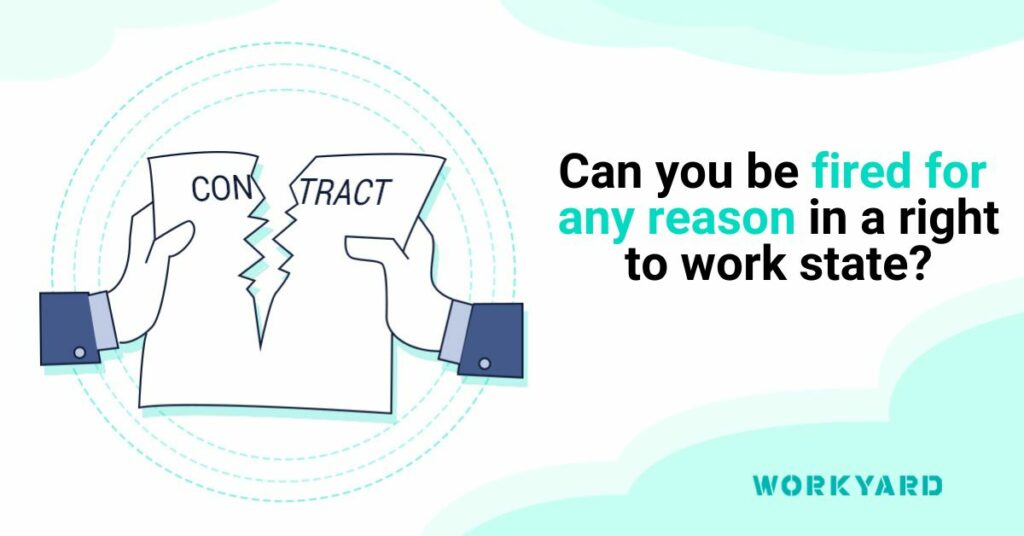In a right to work state, the principle of at-will employment typically prevails, meaning that employees can be terminated for any reason or no reason at all, as long as the reason is not discriminatory or in violation of employment contracts or collective bargaining agreements.
Understanding At-Will Employment
At-will employment is a fundamental concept in many U.S. states, including those with right-to-work laws. This means that both the employer and the employee have the right to terminate the employment relationship at any time, with or without cause, and without prior notice.
Limitations and Exceptions
While at-will employment allows employers broad discretion in terminating employees, there are limitations and exceptions to consider. Employers cannot terminate employees for reasons that violate federal or state anti-discrimination laws, such as race, gender, age, religion, disability, or other protected characteristics.
Additionally, terminations cannot be retaliatory in nature, such as in response to an employee’s exercise of protected rights, like filing a complaint or participating in union activities.
Employment Contracts and Collective Bargaining Agreements
In some cases, employment contracts or collective bargaining agreements may modify the at-will employment relationship. These agreements may specify conditions under which termination can occur and may provide additional protections for employees, such as requiring a certain notice period or establishing grounds for termination.
Know Your Rights
Employees in right-to-work states should familiarize themselves with their rights under state and federal employment laws. It’s essential to understand the terms of any employment contracts or collective bargaining agreements and to seek clarification from human resources or legal professionals if uncertain about termination policies or procedures.
In summary, while employees in right-to-work states are generally subject to at-will employment, there are legal limitations and exceptions to consider. Understanding your rights as an employee is crucial to navigating the complexities of employment termination and ensuring fair treatment in the workplace.

